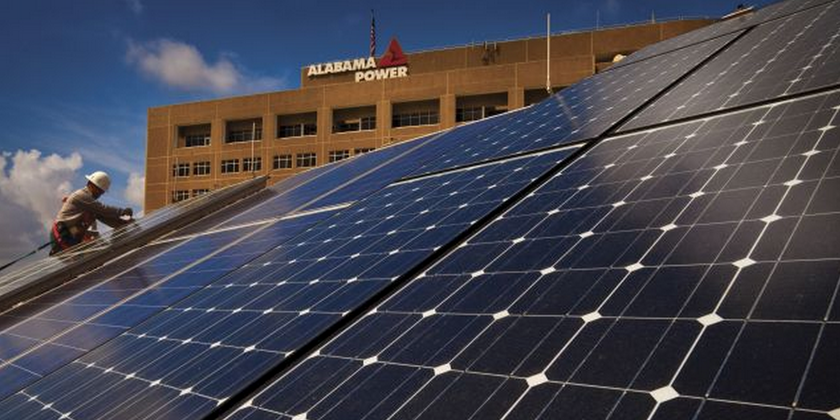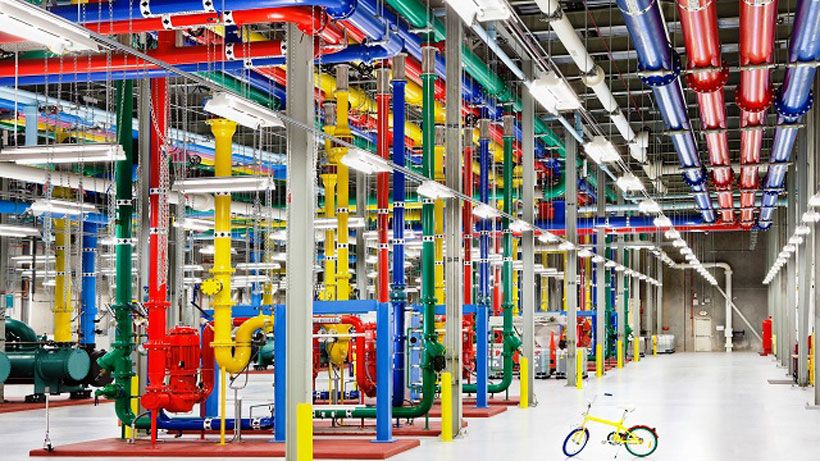Alabama Commerce Secretary Greg Canfield says initiatives to expand the availability of renewable energy in the state will enhance Alabama’s ability to compete for some economic development projects.
This year, TVA entered into a 20-year agreement to purchase 80 megawatts of solar power from NextEra’s solar facility near Florence, and just last month Google and TVA reached a deal to develop a data center in Alabama powered entirely by alternative energy.
This month, Alabama Power Co. announced plans to boost its renewable power options in a move that could allow the utility to offer more solar power.
“There continues to be growing demand for sourcing renewable energy in advanced manufacturing and technology-driven industrial projects,” Secretary Canfield said. “I applaud the moves by Alabama Power and TVA in this direction. These initiatives will complement their current offerings of cost-effective, reliable power and open up even more opportunities for new capital investment and job creation within Alabama.”
Alabama Power, in response to growing customer interest, asked the Alabama Public Service Commission in June for approval for up to 500 megawatts of generation from renewable resources, including solar.
To put that into perspective, 500 megawatts of solar power is enough to serve about 100,000 homes during an hour of peak sun intensity on cloudless days, Alabama Power said. It added that 500 megawatts represents between 4 and 5 percent of the Alabama Power’s capacity.
“Our goal is to make sure we have flexibility and options for our customers who have made requests to have solar – whether it’s for a corporate mandate in some cases or it’s because we’re trying to help retain our customers in the state of Alabama,” said Tony Smoke, Alabama Power’s vice president of marketing.
RENEWABLE DEMAND
Renewable energy options are important to many companies these days, particularly Google and other tech firm building data centers. These facilities are packed with servers and other equipment that act as the engines of the Internet. These facilities require enormous amounts of energy, as they are packed with servers and other computer equipment. To reduce consumption needs and lower their carbon footprint, many tech companies have begun designing their data centers for maximum efficiency while turning to renewable energy sources.
Having access to renewable energy was a key factor in Google’s decision to pick Jackson County for its $600 million data center, which will become the 14th node in the company’s global network.
“In 2010, we were one of the first companies outside of the utility industry to buy large amounts of renewable energy,” Google executive Patrick Gammons noted just after the announcement. “Since then, we’ve become the largest corporate renewable energy purchaser in the world….We’re glad to see this trend is catching on among other companies.”
TVA, which provides electricity to portions of North Alabama, has said the Google agreement continues to demonstrate the public power provider’s commitment to the environment. In fiscal year 2014, 13 percent of the energy TVA generated or purchased was renewable, including hydro. In calendar year 2015, TVA is offering 131 megawatts of renewable capacity through a variety of power-purchasing programs for homes, businesses and wholesale installations.
“TVA has been a leader in renewable energy for decades and renewables are a strategic part of our diversified portfolio,” TVA President and CEO Bill Johnson said. “Renewable energy is important in attracting industries and jobs, and contributes to a cleaner environment.”
Renewables also are in the mix for the PowerSouth Energy Cooperative, which primarily serves south Alabama and northwest Florida. Andalusia-based PowerSouth has an agreement to purchase 20 megawatts of generation from a wind farm operated by NextEra in Iowa, according to its web site. Plus, it was a founding member of the National Renewables Cooperative Organization, a non-profit created to promote and facilitate renewable energy opportunities for co-ops.












